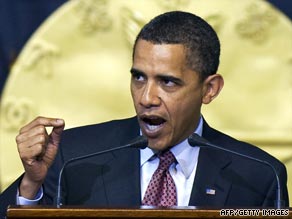By Wong Choon Mei
 Hindraf chairman P Waythamoorthy ticked off Prime Minister Najib Razak for failing to protect and advance the lot of the Indian community in Malaysia.
Hindraf chairman P Waythamoorthy ticked off Prime Minister Najib Razak for failing to protect and advance the lot of the Indian community in Malaysia.
“Instead of looking into the genuine grievances raised by Hindraf and addressing them objectively, the government plays to the tune and sentiment of racialism as capitalised by certain elements,” Waythamoorthy said in a statement.
The Indian leader is in self-exile in London after fleeing certain arrest under Malaysia’s notorious Internal Security Act, which allows for indefinite imprisonment without trial.
Five other leaders of the outlawed movement – a coalition of Indian rights groups and NGOs – were locked up in December 2007 after organising a mammoth rally the month before.
All five, including Waytha’s brother, Uthayakumar, were released only recently – two in April this year and three earlier this month.
Najib’s supporters have not been shy to ask the five to thank the PM for their freedom. However, Hindraf views their arrests to be illegal in the first place.
Said Waytha: “To date, Hindraf has been demonized by the government with all kinds of allegation and accusation, yet the government fails to see that Hindraf has created an awareness within the public with its sole objective is to ensure an equal and fair treatment in a nation that we call Malaysia.
“If the Prime Minister and his government is really working towards promoting unity, then it should take the trouble to engage all parties and voices genuinely and deepen the solidarity between their people, while respecting their history, culture and their traditions, rather than abusing its power by threatening and intimidating through its machinery which is in line with authoritarianism, intolerance, and a police state.”
A callous PM
 Waytha also slammed Najib, who had threatened further action, for trying to intimidate Hindraf.
Waytha also slammed Najib, who had threatened further action, for trying to intimidate Hindraf.
Earlier this week, the prime minister had suddenly turned around, chiding Hindraf for complaining that four of the five detainees were forced to sign conditional letters of release before being allowed to leave the Kamunting Detention Centre.
One of them, M Manoharan – the DAP assemblyman for Kota Alam Shah – also called for all Malaysians born from Independence Day August 31, 1957 onwards to be be accorded Bumiputra or indigenous people status.
“The warning issued by the Prime Minister is one that is callous in nature without regard for the suffering of the minorities, in particular the poor and neglected ones across the board and their sentiments to create a better Malaysia for all,” Waytha said.
“In what way were the statements made by the Hindraf leaders extreme in nature? How can the call by the Hindraf leaders against the review on the release of the Hindraf detainees and accordingly, the equal and fairer treatment towards all Malaysian-born be construed as extreme in nature when the Prime Minister shouts out for One Malaysia?”

 KUALA LUMPUR, June 15 — Datuk Seri Mohammad Nizar Jamaluddin was thrown out of Parliament moments after he was sworn in this morning as the new Bukit Gantang MP.
KUALA LUMPUR, June 15 — Datuk Seri Mohammad Nizar Jamaluddin was thrown out of Parliament moments after he was sworn in this morning as the new Bukit Gantang MP.
 (06-04) 20:48 PDT — President Obama sought in Cairo today to warm the Islamic world to the United States eight years after the 9/11 attacks, carefully targeting the world’s 1.5 billion Muslims in their prime time.
(06-04) 20:48 PDT — President Obama sought in Cairo today to warm the Islamic world to the United States eight years after the 9/11 attacks, carefully targeting the world’s 1.5 billion Muslims in their prime time.
 At the halfway mark of their Penanti by-election campaign, Pakatan Rakyat believes its chances for another thumping win will hinge on getting voters to come to the ballot boxes this Sunday, rather than on the competition put up by the three Independents, including the controversial Aminah Ahmad.
At the halfway mark of their Penanti by-election campaign, Pakatan Rakyat believes its chances for another thumping win will hinge on getting voters to come to the ballot boxes this Sunday, rather than on the competition put up by the three Independents, including the controversial Aminah Ahmad. Penanti is a small constituency of 15,384 voters. It is located on mainland Penang, with padi fields, rubber and palm oil plantations dotting a landscape made up of little villages and a smattering of commercial activities.
Penanti is a small constituency of 15,384 voters. It is located on mainland Penang, with padi fields, rubber and palm oil plantations dotting a landscape made up of little villages and a smattering of commercial activities. By Wong Choon Mei
By Wong Choon Mei
 At Penanti, Pakatan has fielded PKR Penang deputy chief Mansor Othman. The 56-year old former USM lecturer will face three Independent candidates in the by-election – Aminah Abdullah, Nai Khan and Kamarul Ramizu Idris.
At Penanti, Pakatan has fielded PKR Penang deputy chief Mansor Othman. The 56-year old former USM lecturer will face three Independent candidates in the by-election – Aminah Abdullah, Nai Khan and Kamarul Ramizu Idris.





![My Broken Heart [Explore 15/5/24] My Broken Heart [Explore 15/5/24]](https://live.staticflickr.com/65535/53722911143_d5a75671ec_s.jpg)



leave a comment